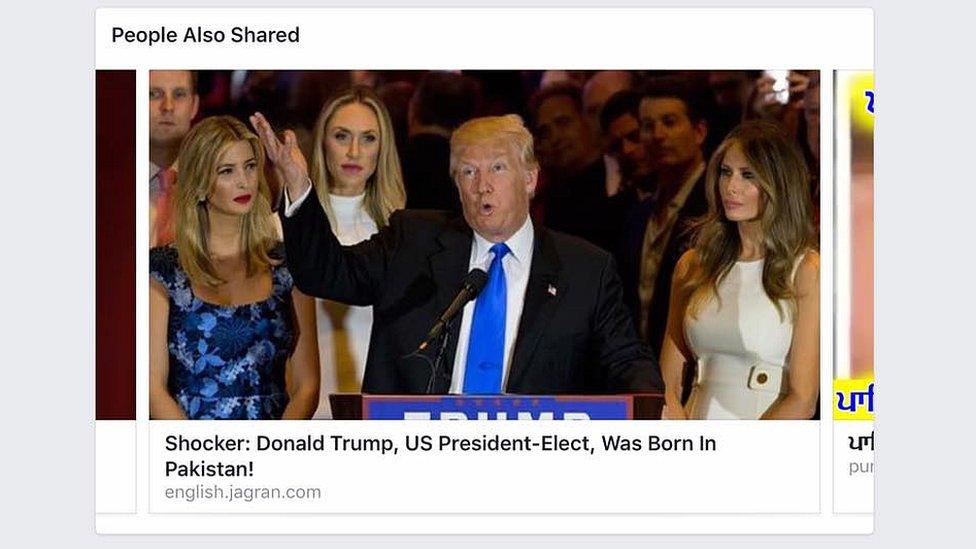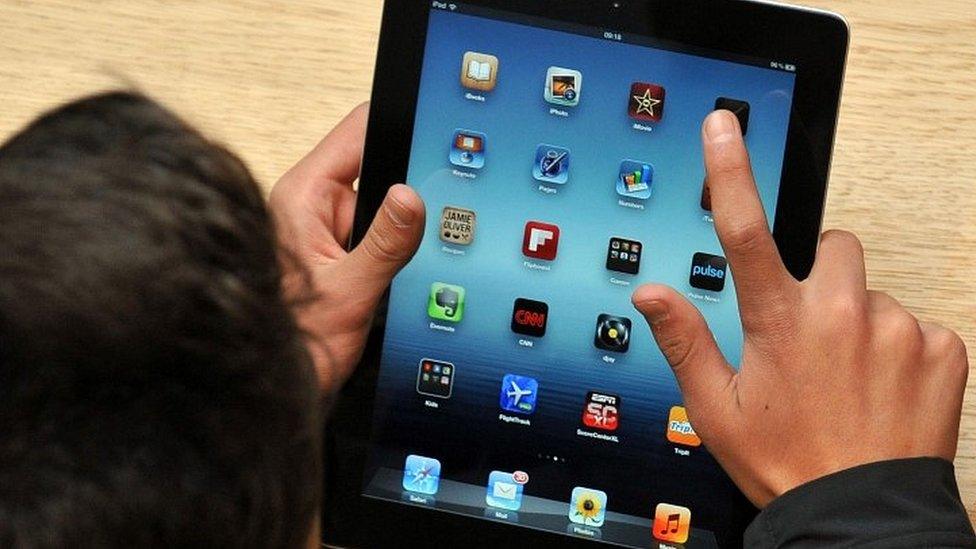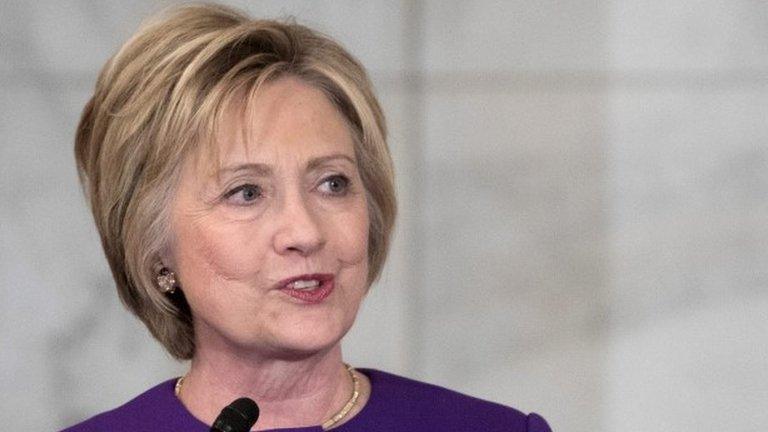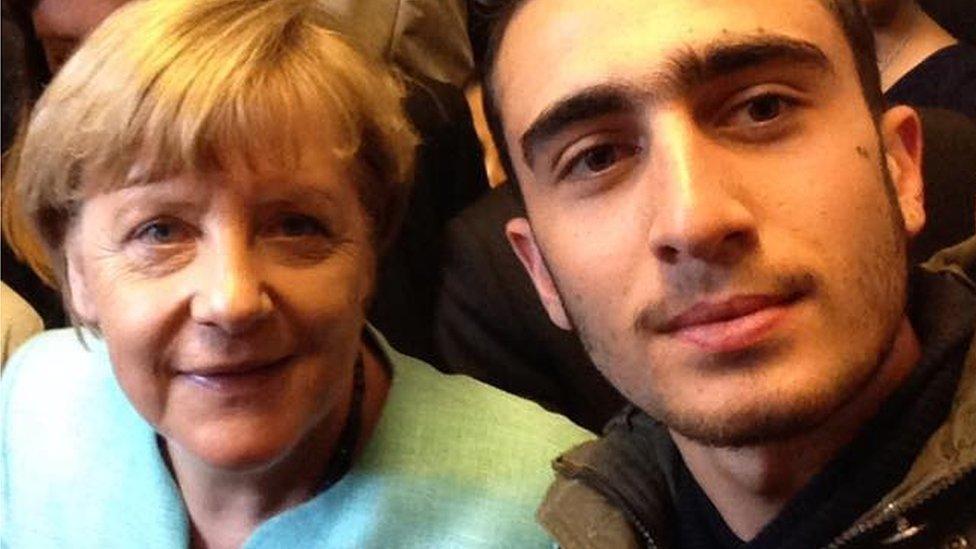Fake news inquiry by MPs examines threat to democracy
- Published
- comments

Concerns about fake news grew during the US election
MPs are launching a parliamentary inquiry into the "growing phenomenon of fake news".
The Culture, Media and Sport Committee , externalsaid it would investigate concerns about the public being swayed by propaganda and untruths.
The inquiry will examine the sources of fake news, how it is spread and its impact on democracy.
Claims that voters in the US election were influenced by fake news spurred the inquiry, the committee said.
Damian Collins, the committee chairman, said the rise of propaganda and fabrications is "a threat to democracy and undermines confidence in the media in general".
Editor-in-chief, yournewswire.com, Sean Adl-Tabataba: This is a war on 'alternative media'
"Just as major tech companies have accepted they have a social responsibility to combat piracy online and the illegal sharing of content, they also need to help address the spreading of fake news on social media platforms," he said.
"Consumers should also be given new tools to help them assess the origin and likely veracity of news stories they read online.
"The committee will be investigating these issues as well as looking into the sources of fake news, what motivates people to spread it and how it has been used around elections and other important political debates."
Limited impact
The MPs want to investigate whether the way advertising is bought, sold and placed online has encouraged the growth of fake news.
They also want to address the responsibility of search engines and social media to stop spreading it.
The way that fake news affects people's understanding of the world and their trust in traditional journalism will also be examined, as will the issue of whether different demographic groups respond to made-up stories in different ways.
New research suggests that online hoaxes and propaganda may have only had limited impact in the US presidential election, however.
According to a study, external by two US economists, fake news which favoured Donald Trump was shared 30 million times in the three months before the election, four times more than false stories favouring Hillary Clinton.
But the authors said that only half of people who saw a false story believed it, and even the most widely circulated hoaxes were seen by only a fraction of voters.
The cross-party Commons committee is seeking written submissions from interested parties by the start of March and is expected to hold hearings in due course.
Labour launched its own investigation into fake news earlier this month, led by former shadow culture secretary Michael Dugher. He warned that his party needed to be wary of misinformation coming from the left as well as the right.
- Published13 January 2017

- Published9 December 2016

- Published12 January 2017
